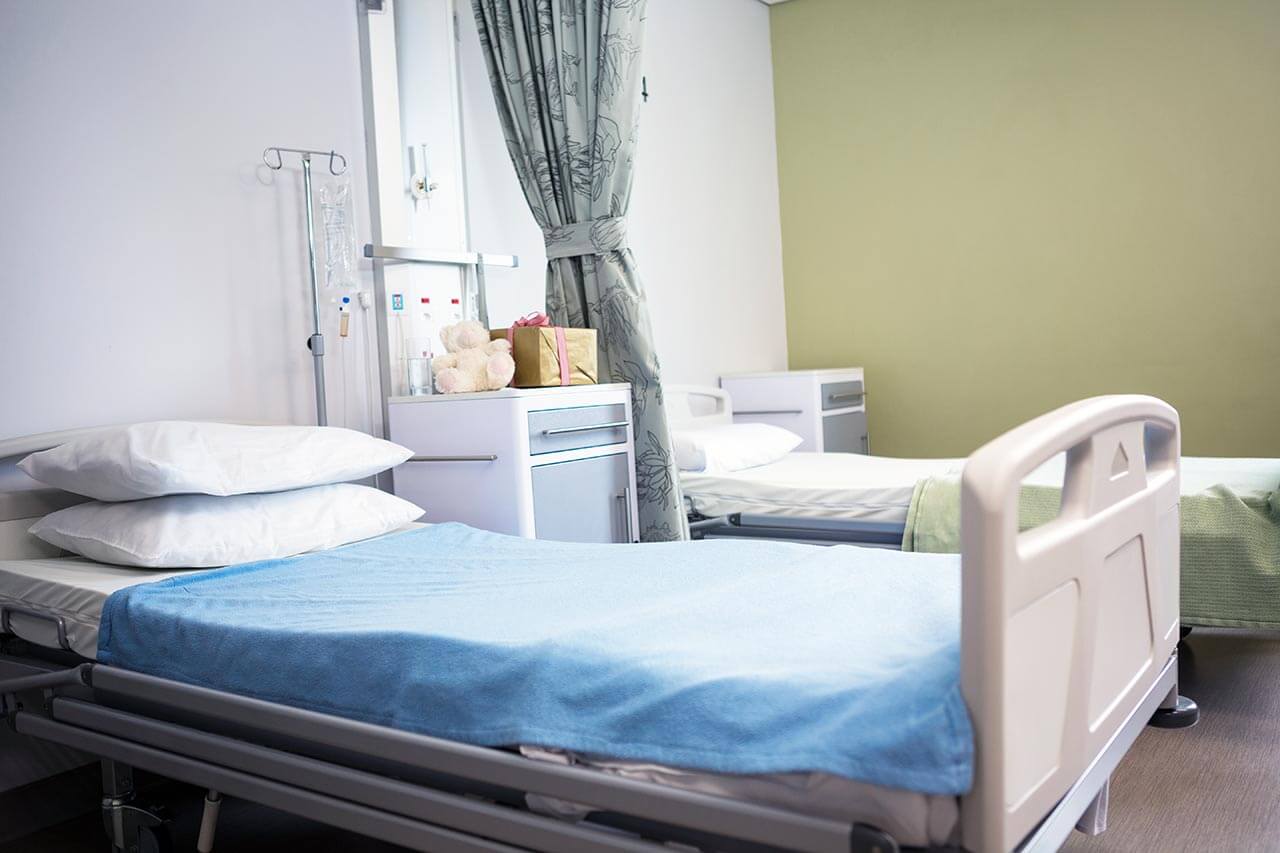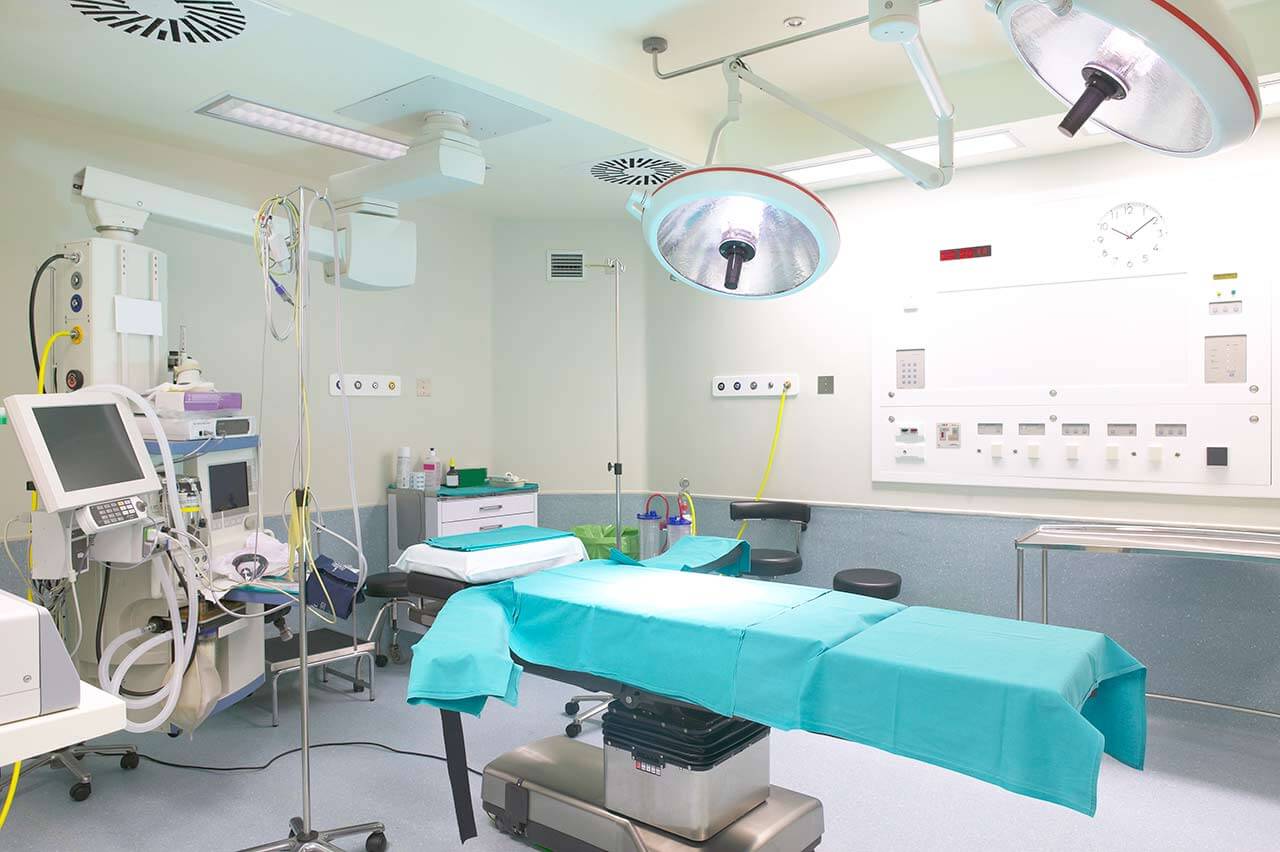
The program includes:
- Initial presentation in the clinic
- clinical history taking
- review of medical records
- physical examination
- laboratory tests:
- complete blood count
- general urine analysis
- biochemical analysis of blood
- inflammation markers (CRP, ESR)
- blood coagulation analysis (aPTT, PT, INR)
- hormone test (estradiol, progesterone, prolactin, DHEA-s, FSH, LH)
- gynecological examination.
- ultrasound examination: pelvis, abdomen, thyroid gland, breasts
- nursing services
- consultation of related specialists
- treatment by chief physician and all leading experts
- explanation of individual treatment plan
Required documents
- Medical records
Service
You may also book:
 BookingHealth Price from:
BookingHealth Price from:
About the department
The Department of Pediatric Endocrinology at the Children's Hospital Nuremberg provides top-class medical care to young patients with endocrine disorders. Of particular interest to the department's team of doctors is the detection and treatment of hormonal imbalances. The department's endocrinologists cooperate closely with pediatric diabetology experts and jointly hold consultations for children with diabetes mellitus. The medical facility has excellent technical resources for diagnosing the endocrine system in children, including advanced laboratories and ultrasound rooms. During the treatment, doctors successfully use individually elaborated drug therapy and hormone replacement therapy regimens. As a rule, children are treated on an outpatient basis, but they can also receive medical care on an inpatient basis if necessary. The health of young patients is in the safe hands of experienced endocrinologists who manage to establish a trusting relationship with the child from the very first meeting. The department also offers consultations on such delicate issues as disorders of sexual differentiation and transsexualism. The doctors always devote enough time to personal communication with parents and detailed consultations. The department is headed by Dr. med. Egbert Voss.
The department has gained vast experience in the diagnosis and treatment of type 1 diabetes mellitus in children. The diagnostic process begins with a thorough study of the child's medical history and complaints. The most common manifestations of this disease include frequent urination, excessive thirst, weight loss, and chronic fatigue. A blood glucose test is necessarily carried out during the diagnostics. The primary method of managing type 1 diabetes mellitus in children is insulin therapy. Doctors elaborate personalized insulin replacement therapy regimens, taking into account the peculiarities of the course of diabetes mellitus in each child. Great attention is also paid to lifestyle modifications. Training programs covering proper nutrition, physical activity, and stress management are offered to the child and their parents. An important aspect of the treatment process is training parents in caring for a child with diabetes mellitus, including learning how to measure glucose levels, administer insulin properly, and recognize and respond to symptoms of hypoglycemia and hyperglycemia. The department also offers psychosocial support.
The department's clinical practice is especially focused on the medical care of children with congenital and acquired thyroid disorders. The three most common thyroid pathologies in children are goiter (enlargement of the thyroid gland), hypothyroidism (insufficient production of thyroid hormones), and hyperthyroidism (increased production of thyroid hormones). The department's diagnostic offer in this area includes a full range of laboratory tests to determine thyroid hormone levels and ultrasound scans of the organ. As a rule, treatment is based on the prescription of hormones to normalize organ function.
The department regularly admits children with puberty disorders, such as delayed and premature puberty. The cause of premature puberty is stimulation of the synthesis of sex hormones in the ovaries (in girls) or testes (in boys) by the hypothalamus and pituitary gland earlier than this should normally occur. Delayed puberty is stated if this physiological process has not begun in girls at 10-12 years old and in boys at 12-13 years old. The cause of premature puberty may be pathological changes in the work of the sex glands, adrenal hyperplasia, hypothalamus neoplasms, and pituitary tumors. Delayed puberty may be caused by hypogonadism and hypothalamic or pituitary disorders. The department offers personalized hormone therapy regimens for the treatment of puberty disorders.
The department's doctors often deal with the treatment of genetic diseases affecting the endocrine organs. Of particular interest for the doctors is the treatment of children with Ullrich-Turner syndrome and Klinefelter syndrome. These genetic diseases may affect various body systems and require a comprehensive approach to develop effective therapies. To diagnose genetic syndromes, the department's specialists perform various tests, including molecular and genetic analyses, to detect characteristic genetic mutations. Clinical examination and instrumental diagnostics are used to assess the condition of the internal organs. For example, a child with Ullrich-Turner syndrome often has insufficient production of thyroid hormones (hypothyroidism). In such cases, endocrinologists carry out the necessary drug therapy with hormones.
The department's key clinical focuses include:
- Diagnostics and treatment of type 1 diabetes mellitus
- Diagnostics and treatment of congenital and acquired thyroid diseases
- Diagnostics and treatment of adrenal diseases
- Diagnostics and treatment of pituitary diseases
- Diagnostics and treatment of growth disorders: short stature and gigantism
- Diagnostics and treatment of puberty disorders: delayed and premature puberty
- Diagnostics and treatment of disorders of sexual differentiation
- Diagnostics and treatment of transsexualism (gender identity disorder)
- Diagnostics and treatment of genetic diseases affecting the endocrine organs: Ullrich-Turner syndrome and Klinefelter syndrome.
- Diagnostics and treatment of calcium and phosphate metabolic disorders
- Diagnostics and treatment of other endocrine diseases in children
Photo of the doctor: (c) Klinik Hallerwiese-Cnopfsche Kinderklinik
About hospital
The Children's Hospital Nuremberg is a maximum care health facility that focuses on providing effective care for young patients in a pleasant and comfortable environment. The hospital admits children and adolescents up to 18 years old. Medical care can be provided on an inpatient or outpatient basis. Highly qualified doctors and experienced nursing staff work with children. The specialists get along well with young patients. The goal of the hospital's medical team is to provide patients with modern and most sparing treatment. It is also important for doctors to eliminate pain and discomfort during the therapeutic process. The key to successful clinical practice in the medical facility is the close cooperation of doctors, their high competence and vast experience, as well as the hospital's state-of-the-art medical equipment and modern infrastructure.
The hospital has more than ten specialized departments. Priority areas include pediatric otolaryngology, surgery, urology, orthopedics, endocrinology, oncology, hematology, pulmonology, and neuropediatrics. Patients are offered innovative treatments that have proven themselves at the international level. Surgical treatment involves the wide use of sparing, minimally invasive techniques, after which children recover quickly and experience virtually no pain.
The hospital admits more than 15,000 young patients every year, most of whom are treated on an outpatient basis without mandatory hospitalization. Each child receives personalized care. The treatment is accurately planned, and the doctor tells the parents about its specifics. An important aspect is a friendly and attentive attitude towards children, as well as understanding their fears and needs.
The Children's Hospital Nuremberg has repeatedly received the "Ausgezeichnet. FÜR KINDER" quality certificate. This certification is granted to the best children's hospitals in Germany, which regularly demonstrate high treatment success rates.
Photo: (с) depositphotos
Accommodation in hospital
Patients rooms
The patients of the Children's Hospital Nuremberg live in comfortable rooms designed in a child-friendly style. The furnishing of a patient room includes a comfortable automatically adjustable bed, a bedside table, a table, chairs, and a wardrobe. The hospital has a Rooming-in system, thanks to which parents can stay in the same room with their child. To ensure interesting and pleasant leisure time for children, the hospital has excellent playrooms, where every child can find something to do and toys to their liking.
Meals and Menus
The patients at the hospital are offered three tasty and balanced meals a day: breakfast, lunch, and dinner. With appropriate clinical indications, an individual menu may be developed for the child.
Further details
Standard rooms include:




